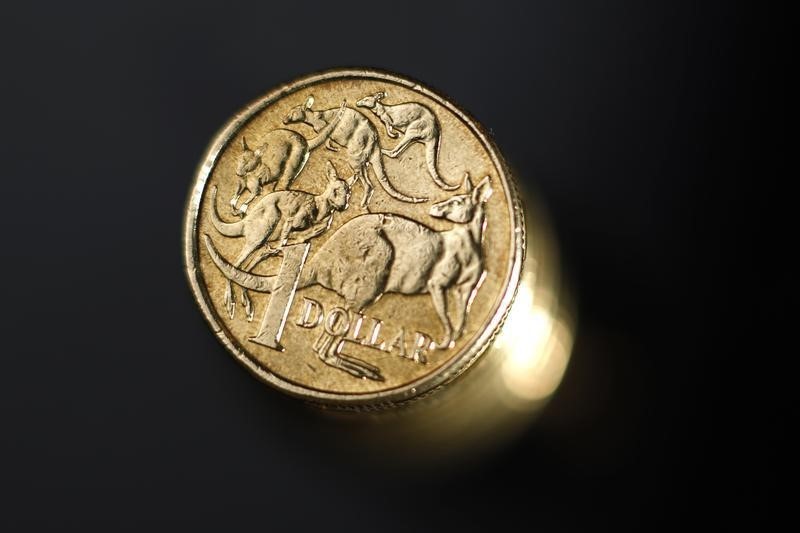Investing.com - The Aussie jumped and the yen held gains on mixed data in Asia on Friday with China trade figures seen broadly in line with expectations, though down on exports.
USD/JPY changed hands at 108.19, down 0.24%, while AUD/USD traded at 0.8095, up 0.58%.
China's trade balance data came in at a surplus of $41.99 billion, narrower than the $48.6 billion expected for August. Imports jumped 13.3%, better than the 10% gain seen, while exports rose 5.5%, compared to a gain of 6.0% expected.
Earlier, China reported yuan-denominated exports gained 14.4% oon year and rose 6.9% on month for an August for a trade balance surplus of CNY 286. billion.
In Japan with the unadjusted current account for July came in at a surplus of ¥2.320 trillion, wider than the ¥2.059 trillion seen, but GDP figures showed an unexpected downward revision for the second quarter to 0.6% on quarter from 1.0% in a preliminary reading and a 2.5% increase on year, compared to 4.0% earlier.
Australia reported home loans data for July jumped 2.9%, compared wwith a 1.0% gain seen.
The U.S. dollar index, which measures the greenback’s strength against a trade-weighted basket of six major currencies, fell 0.33% to 91.19.
Overnight, the dollar dropped to 32-month lows against the other major currencies on Thursday, after the release of downbeat U.S. jobless claims data and as remarks by European Central Bank President Mario Draghi sent the euro broadly higher.
The greenback weakened after the U.S. Labor Department reported on Thursday that initial jobless claims rose more than expected to 298,000 last week.
The data came a day after a brief sigh of relief on the U.S. political front.
On Wednesday, President Donald Trump concluded a surprise deal with Democrats in Congress to extend the debt ceiling, providing government funding until December 15 and potentially avoiding an unprecedented default on U.S. government debt.
The euro found broad support after the ECB President Mario Draghi said that recent euro volatility was a source of uncertainty and that the ECB will decide on the “calibration” of policy measures in the autumn.
He added that the central bank's outlook for growth and inflation in the euro area remained “broadly unchanged."
The comments came after the ECB left interest rates unchanged, in a widely expected move.
